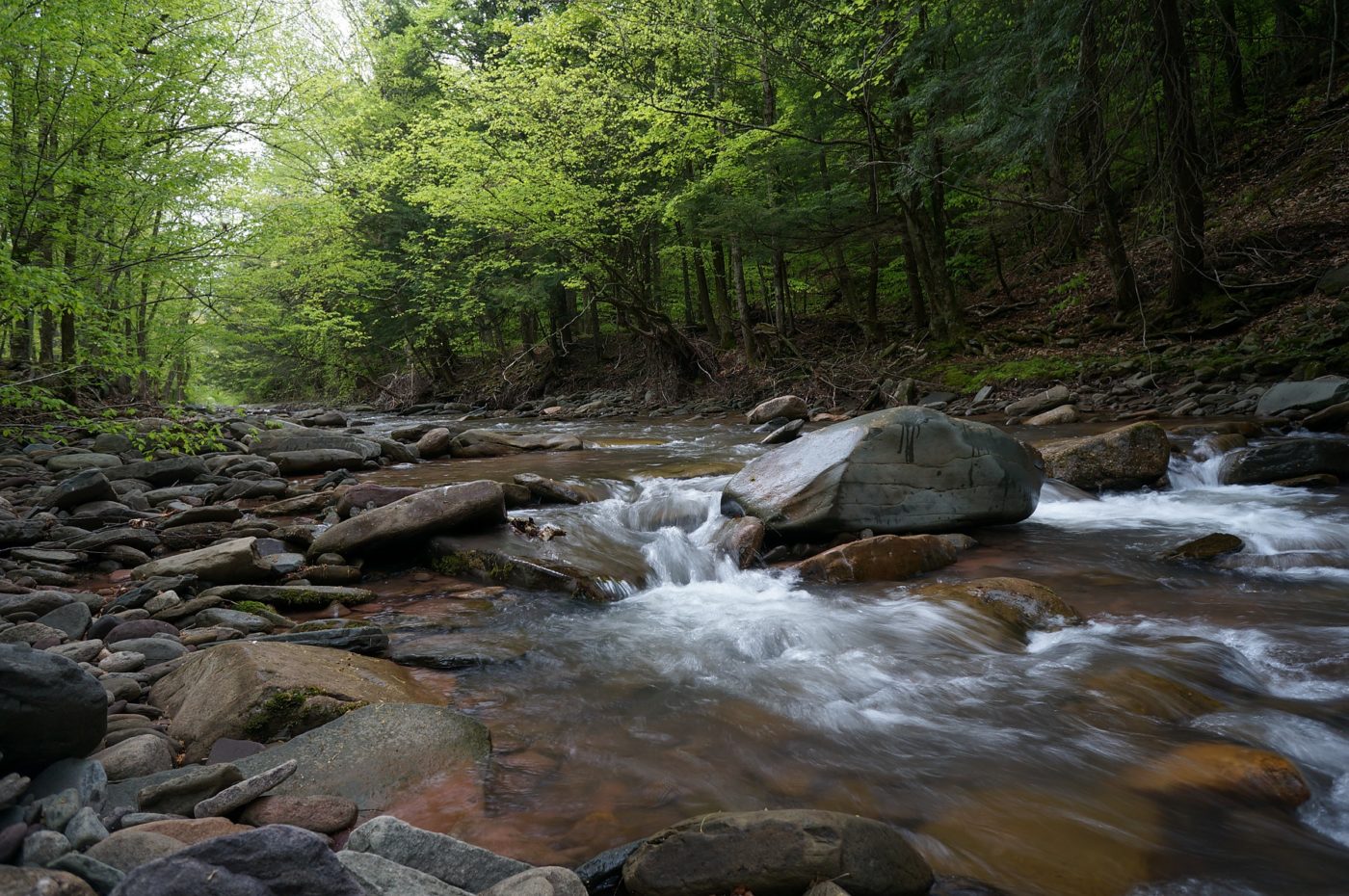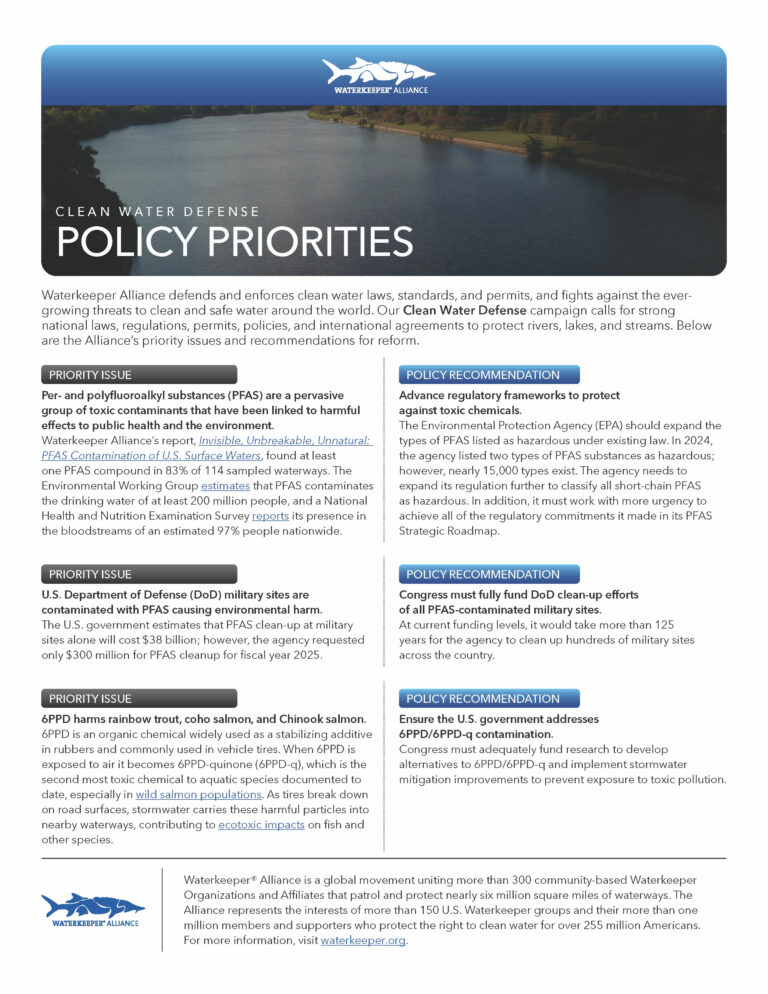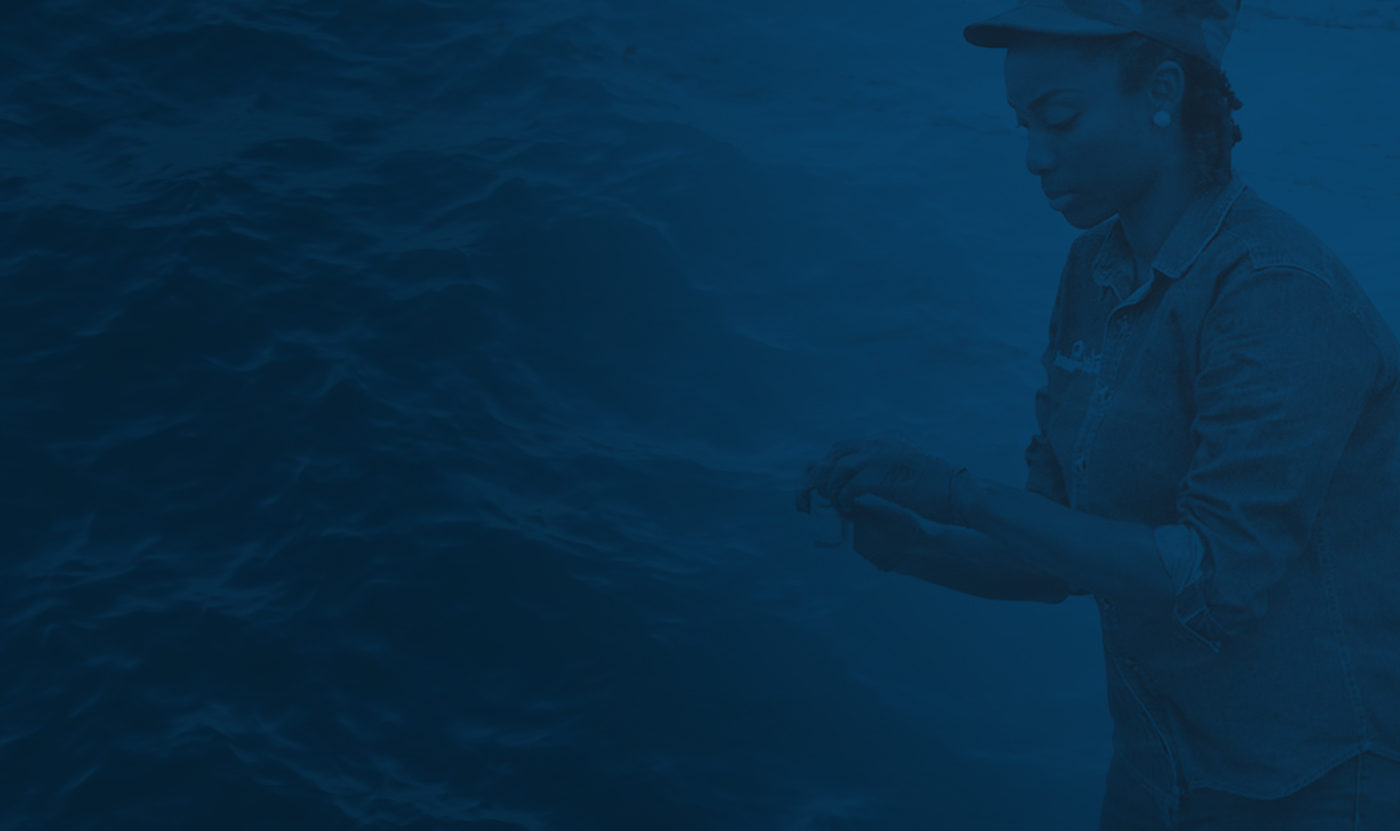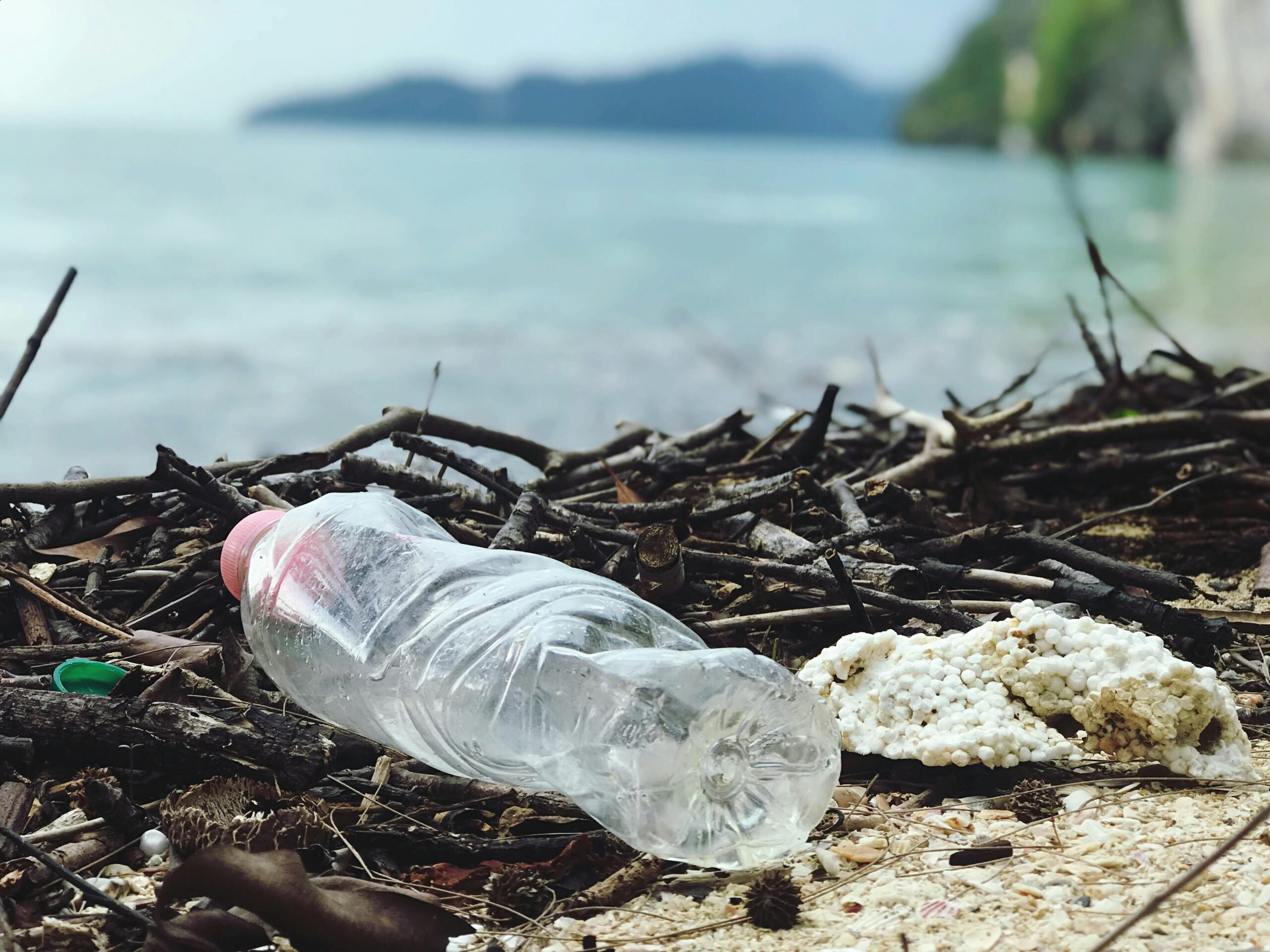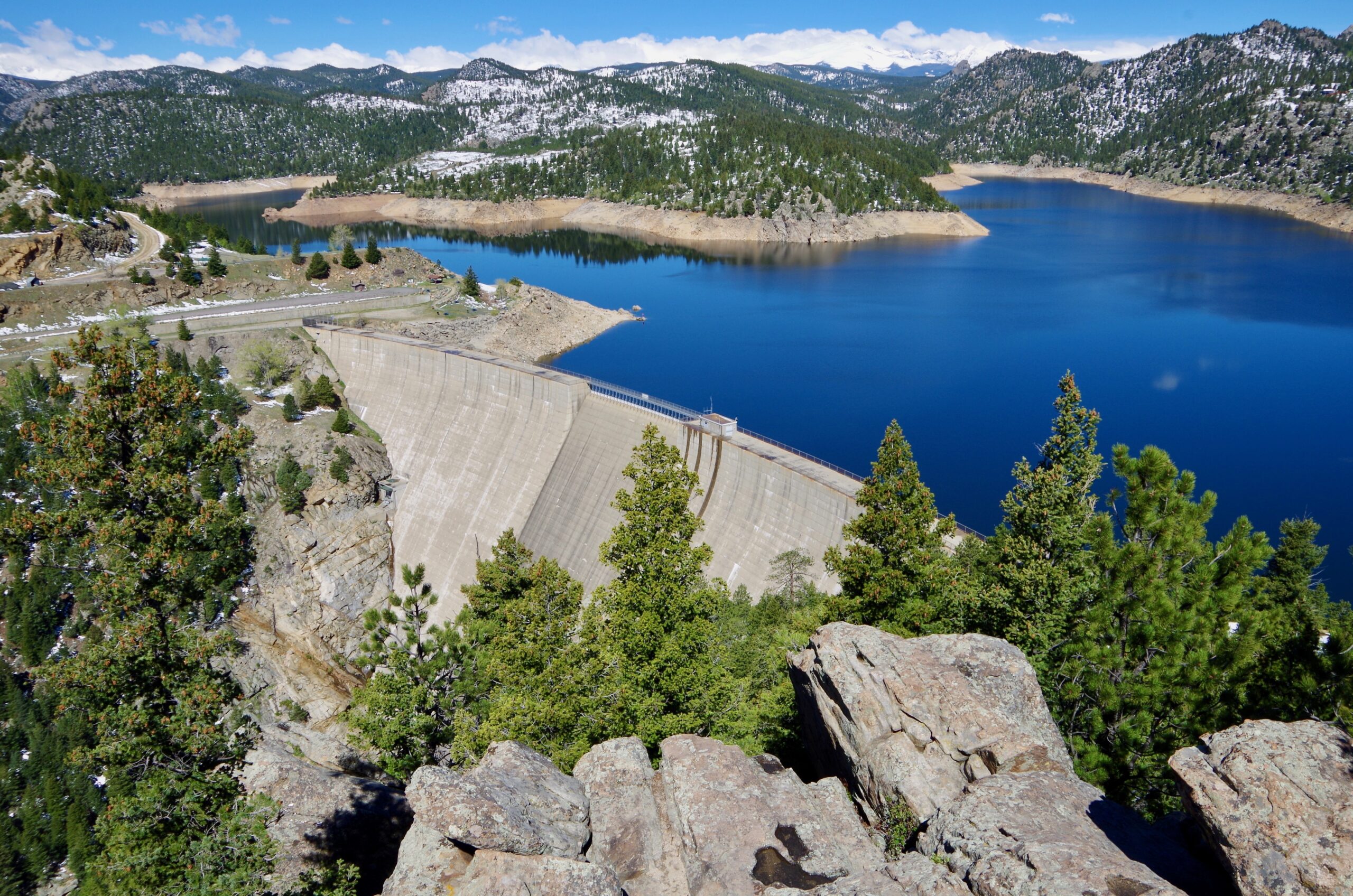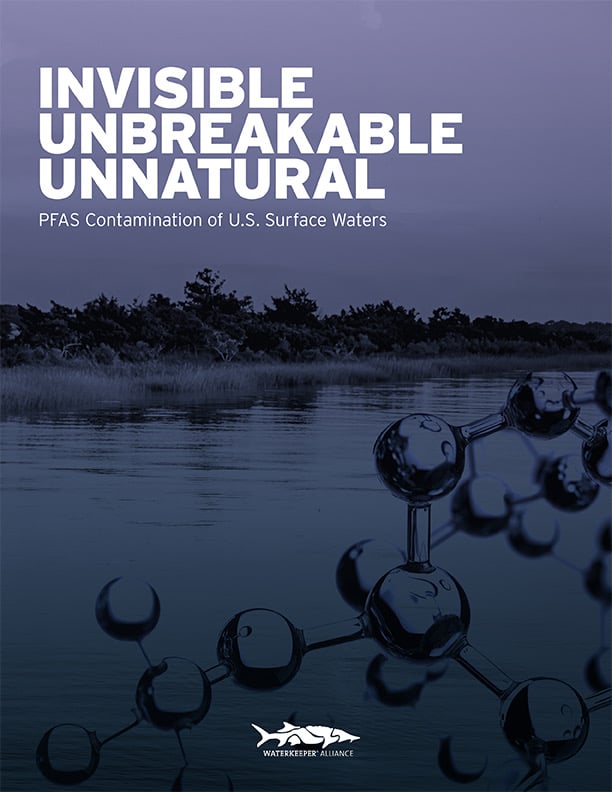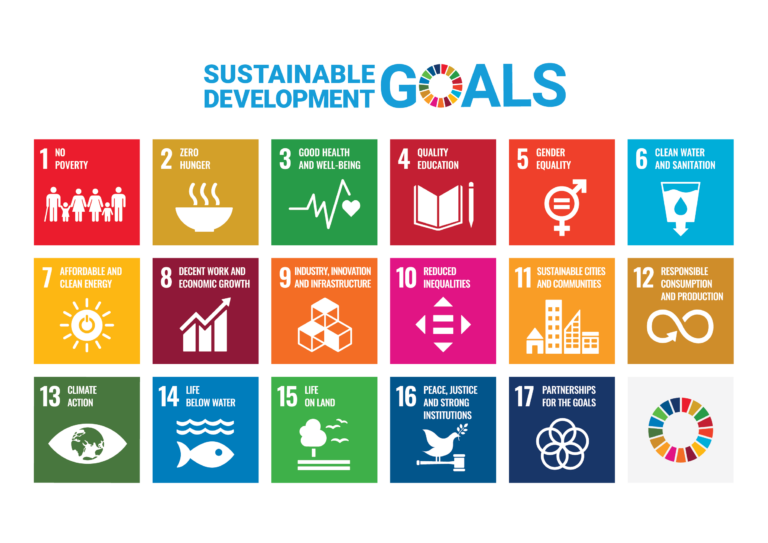Our Clean Water Defense campaign defends and enforces clean water laws, standards and permits, and fights against the ever-growing threats to clean and safe water.
Governments around the world have enacted laws to protect water quality and the communities that depend on clean water. Waterkeeper groups around the world work with those laws to restore and protect the world’s waterways. In the United States, there are local, state, and national laws designed to control pollution sources and restore our streams, rivers, lakes, and estuaries to drinkable, fishable, and swimmable conditions. Increasingly, however, these laws are being rolled back, or even eliminated, to serve powerful corporate interests.
Waterkeeper Alliance’s Clean Water Defense campaign and our international network of Waterkeeper groups:
- Work with communities to protect and restore waterways around the world.
- Aggressively oppose the weakening or elimination of federal environmental statutes, regulations, enforcement, and funding in the United States and around the world.
- Support clean and free-flowing rivers and waterways.
- Mobilize resources through the Ocean Plastic Recovery Initiative to establish recycling infrastructure and plastic recovery efforts to stop plastic pollution from entering our oceans.
- Restore and remediate distressed areas to provide justice, equality, and better health outcomes to correct decades of environmental damage inflicted upon the health and wellbeing of low-income communities, communities of color, and Indigenous communities.
Policy Priorities
Our Clean Water Defense campaign calls for strong national laws, regulations, permits, policies, and international agreements to protect rivers, lakes, and streams. Learn more about our priority issues and recommendations for reform.
Invisible. Unbreakable. Unnatural
Take a deep dive into our 2022 analysis of U.S. surface waters, which found that 83% of the 114 tested waterways were contaminated with PFAS, a class of manufactured organic chemicals that resist breaking down in the environment, as well as in humans and other living organisms. A second phase of this water monitoring project is currently underway for release in 2025.
UN Sustainable Development Goals
As change accelerators, Waterkeeper Alliance and its global movement of Waterkeeper groups proactively engage with the UN, UN-Water, rights-holders, and other stakeholders to advance the SDGs.
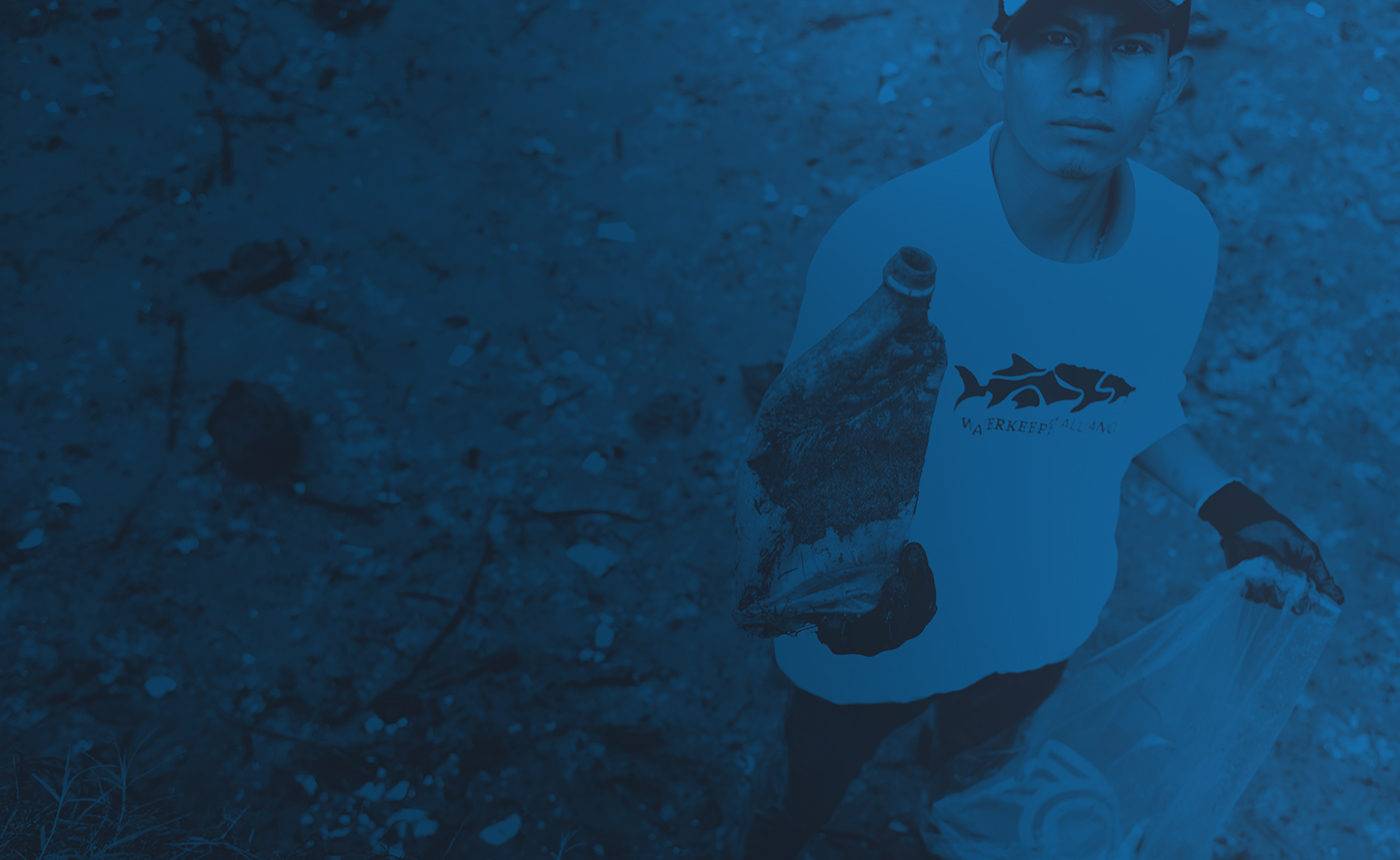
Support the Fight
for Clean Water
Donate today to support drinkable, fishable, swimmable water worldwide.
